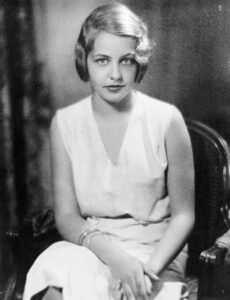 Throughout her life, Ruth Lilly, daughter of Josiah K. Lilly Jr. and great-granddaughter of Eli Lilly and Company founder Col. Eli Lilly, was fond of reading and writing poetry, something that would shape the course of much of her work in philanthropy. Established in 1986, the Ruth Lilly Poetry Prize represents her first gift to the Modern Poetry Association, located in Chicago and founded in 1941 to publish Poetry magazine. The magazine itself was first published in 1912.
Throughout her life, Ruth Lilly, daughter of Josiah K. Lilly Jr. and great-granddaughter of Eli Lilly and Company founder Col. Eli Lilly, was fond of reading and writing poetry, something that would shape the course of much of her work in philanthropy. Established in 1986, the Ruth Lilly Poetry Prize represents her first gift to the Modern Poetry Association, located in Chicago and founded in 1941 to publish Poetry magazine. The magazine itself was first published in 1912.
The prize ($25,000 in 1986, raised to $75,000 in 1993) honors a U.S. poet whose lifetime accomplishments warrant extraordinary recognition. It is awarded annually to one American master poet, chosen by the editor of Poetry magazine and two other judges who review the nominations. It is one of the largest poetry prizes in the country. The first poet to receive the award was Adrienne Rich. Other major American poets who have received the award include Philip Levine (1987), Charles Wright (1993), Donald Hall (1994), A. R. Ammon (1995), W. S. Merwin (1998), Linda Paston (2003), Kay Ryan (2004), Richard Wilbur (2006), Gary Snyder (2008), and Joy Harjo (2017).
In 1989, Lilly also created the Ruth Lilly Fellowship, awarded annually to a college undergraduate or graduate for the study and practice of poetry. Originally, young poets were invited to compete at the National Collegiate Poetry Convocation at Indiana University in Bloomington. The initial award was $15,000. Lilly also endowed the Lilly Professorship for instruction in the composition of poetry at Indiana University in Bloomington and continued to support several writing and poetry projects in Indianapolis.
Lilly followed these gifts with a $100-million donation to the Modern Poetry Association in 2002. This gift was primarily in Lilly Stock, and therefore, ended up amounting closer to $200 million. At this point, the organization had an annual budget of $700,000, and its magazine, Poetry, had a circulation of around 12,000.
Up to this time, most of Lilly’s philanthropy had been focused on Indianapolis and Indiana institutions, following the general pattern of other family members. Her gift to the Poetry Association made her much more well-known nationally, though many criticized giving such a large amount of money to what has become categorized as a marginalized art form.
In 2003, shortly after receipt of the donation, the Modern Poetry Association became the Poetry Foundation. The organization used the money to develop an award-winning website and podcasts, to triple the circulation of Poetry to around 30,000, and to sponsor poetry segments on The PBS NewsHour and Garrison Keillor’s Writer’s Almanac.
With the new grant, the organization also raised the award for the Ruth Lilly Poetry Prize to $100,000 and continued the Lilly Fellowship. In 2005, the foundation partnered with the National Endowment for the Arts to establish “Poetry Out Loud,” an annual poetry recitation contest for high school students. Since its inception, the contest has grown to include over 4 million students, 65,000 teachers, and 16,000 schools throughout the U.S.
The Poetry Foundation dedicated another portion of the Lilly money to construction of the Poetry Center in the Near North Side of Chicago. The building opened in 2011. The foundation uses the structure for poetry readings, contests, plays, artist collaborations, and exhibitions. The Center also holds a library and includes reading spaces, which are open to the public.
Additional awards that the Poetry Foundation has created with the Lilly gift include the Pegasus Award (2004), which annually recognizes the best book-length works of criticism, biographies, essay collections, and critical editions about poetry and poets; the Young People’s Poet Laureate (2006), awarded biennially to a living writer of poetry for young readers; and the Emily Dickinson First Book Award (2012), which publishes the work of an American poet who is 40 years old or older but who has not yet published a first collection of poetry.
In 2013, the Dorothy Sargent Memorial Fund, a foundation established by playwright and Shakespeare scholar Marvin Rosenberg in memory of his wife who was a published poet, followed Lilly’s example, donating $1.2 million to the Poetry Foundation. It subsequently renamed the Ruth Lilly Poetry Fellowship the Ruth Lilly and Dorothy Sargent Rosenberg Fellowships and nearly doubled the award. The foundation recognizes five young poets every year through a national competition, giving $25,800 to each recipient.

